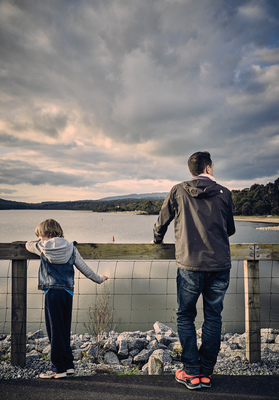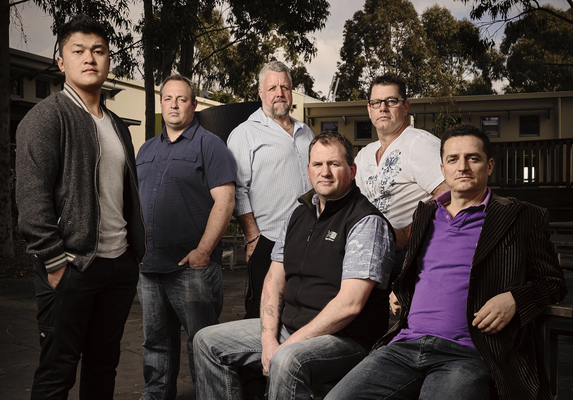Call Me Dad
ABC, iView
WHAT does it mean to be a man in Australia in 2015?
In the week of White Ribbon, the Call Me Dad documentary was a highlight because it took us inside the minds of the perpetrators – more so than the victims – and delivered some startling insight.
For my money, this documentary was even better than the ABC’s extraordinarily good ‘Hitting Home’ two-parter with Sarah Ferguson.
Call Me Dad revealed men who were struggling to understand their gender role, and their place in society.
Their days as unchallenged breadwinners – as the lions of their family jungles, as leaders, as alpha males – are gone. And without that, they are struggling to decide who they are.
Women have already been here. They had to be everything – wives, mums, and career women.
Now, it’s men’s turn. They have to be strong, and buff – and vulnerable, and sensitive, and in touch with their feminine sides, whatever that means. Slay a dragon, then bake a cupcake. Protect the family, and cry over a sad movie. Be the family disciplinarian, and chauffeur the little darling to weekend sport.
Is it any wonder they’re so confused?
“There’s no such thing as happy families – it’s a f*****’ myth,” one says.
“I don’t know what being a f*****’ father is, then,” another adds in exasperation.
One spoke for many men when he described a life that revolved around his vehicles, his shed, his mates – his family didn’t enter the scene.
More than one was trying to emulate a role model father who was abusive himself.
These men are mysteries to us all.
On the surface, they are the lowest of the low – men who raise their hands to women.
And yet, it took real guts to open up the way they did.
Call Me Dad shows that no-one is beyond redemption – that there is good and bad in all of us.
And it simultaneously rejects a shallow view of domestic violence, in the strange dance of men and women.
– Jason Beck








